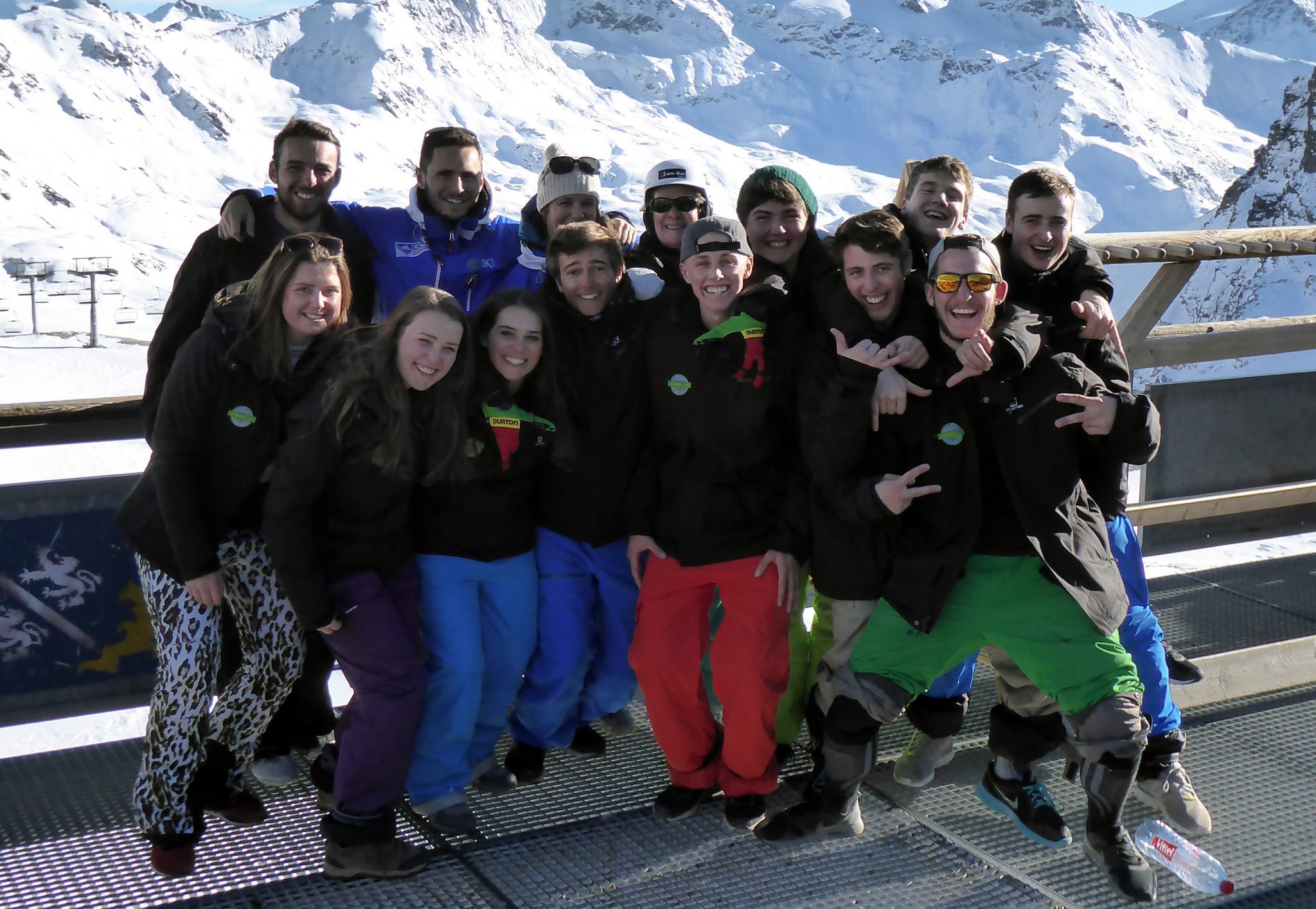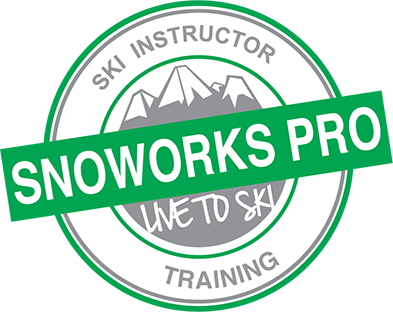
14 Jul Benefits & Pitfalls – Ski Instructor Exam as a GAP Course
So you want to become a ski instructor? Do I do it on a fast track course? (GAP) or do I do it over a season? (Or longer)
This is no doubt a question many of you ask yourselves, friends, work colleagues and current ski instructors.
In this blog I shall share with you an unbiased look into the benefits and pitfalls of both options.
Firstly I need to explain briefly the BASI (British Association of Snowsports Instructors) Alpine pathway to certification and the changes in title.
In 2007 the qualification layout changed: –
Original Current
Foundation – Level 1
BASI 3 – Level 2
BASI 2 (I.S.I.A) – Level 3 (I.S.I.A)
BASI 1 (I.S.T.D) – Level 4 (I.S.T.D)
In 1998 there was no such thing as a ‘GAP’ course or ‘Fast-track’ ski instructor training program to achieve the first 2 BASI levels.
Back then I did my Foundation course with BASI in Tignes with Hugh Brown as my trainer, the Foundation course was the current entry into the British Alpine ski instructor pathway, it was a 1 week course that involved training and education in ski technique, teaching philosophies and delivery. It was purely an attendance course that culminated in the trainer writing you a course report suggesting that you should present yourself for BASI level 3. This would assess if you had potential to become a ski instructor based on their assessment of your ability to ski, people skills and professionalism.
Or it was their opportunity to suggest you should ‘take up tennis!’
There was no pass or fail and no stressful exam environment. I was fortunate to fall into the first example with Hugh kindly suggesting I moved on to the BASI level 3.
I then took my new found desire to become a ski instructor into a seasonal job as a chef in a chalet for British ski company ‘Skivolution’ in Le Praz, Courchevel 1300. I had the good fortune of training with, shadowing and assisting in lessons and lots of time and ski miles to prepare myself for the BASI level 3 assessment at the end of that season (April 1999).
The BASI level 3 assessment was, and still is a 2 week continual training and assessment course, whilst evolution has improved it over the years by the drive and passion of BASI’s training body and association, it remains the same in its basic layout.
This time my trainer was Mark Jones and we had to ski on piste, off piste, moguls, deliver basic lessons to mock beginners (our fellow students doing role play!) train and study to a certain level of technical and teaching proficiency. Again I was successful at this second stage and happily returned to British soil proudly adorned with my BASI 2 badge on my jacket like an Olympic gold!
So whilst I had no choice, you and future ski instructors do! My story will help you understand the ‘Benefits and pitfalls’ of doing it as a ‘fast track’ or like I did over the course of a season (or longer).
‘Fast Track, or GAP course’ the benefits: –
It is now possible and marketed by many different providers to do your BASI level 1 and 2 in as little as 6 weeks! The different providers offering ranges from 6 – 12 weeks with slight differences in price and content and in varying exciting worldwide locations. This surely is a fantastic opportunity? YES…
- Gain 2 recognised qualifications in ski teaching that don’t run out (1 day refresher required every 3 years).
- Potential to go quicker into BASI levels 3 and 4 and make a lifetime career
- Gain immediate employment with BASI level 1 in Snowdomes and dry slopes. With BASI level 2 in Europe, America, Canada, NZ, Australia, Japan and UK.
- The cost – If you break down the list of what you get on these programs and weigh that up with the gains and benefits that can be reaped with success, then work it out versus a weeks skiing holiday they are very good for what you get.
- Get a vast amount of experience and knowledge in a short period of time
- Improve your skiing in a focused and dedicated environment.
- Get the best quality training from BASI level 4 instructors who have been through the journey you are starting on.
- Feel part of a team. These courses create a fantastic team working environment where you can bounce ideas off each other, support each other, compete against each other and make likeminded new ski buddies along the way.
- Experience other additional features such as off-snow ski specific fitness, video feedback, teaching lectures, language skills, off piste safety, ski tuning, first aid.
- Perfect for those with time constraints, time off work, or a year off between jobs or school and university.
- UCAS points.
- Additional qualifications, teaching experience and life skills to take into your next place of work or university course.
‘Fast Track, or GAP course’ the pitfalls: –
Whilst there are many benefits of becoming a ski instructor as fast as possible, some of which listed above, and I am sure you can think of many more ,there are some pitfalls to be considered before speeding your way through.
- The increased chance of not succeeding. With such a short, intense approach there is less time to practice, to teach, to shadow, to learn, to absorb all the information needed, and therefore to succeed at the exam stages of these programs.
- The cost. They do cost a lot, whilst they are value for money if you break it down and with so much included if you are unsuccessful (and there is no guaranteed pass I’m afraid!) this can be a big pill to swallow.
- Time constraint. Not everyone can take 6 – 12 weeks off at once from their regular job or life, this is why these courses do attract students between school and university, however if you can get a sabbatical or are looking for a career change they are still a good choice.
- Flexibility – they are put together in a manner that covers all aspects needed to achieve full BASI level 2 success, but with that comes a lack of flexibility. To take a week off during the course, to travel home on a weekend or keep your real job ticking over is not impossible but is harder due to the amount of content needed to be delivered on the course.
‘Taking your time’ the benefits: –
Whilst there are in my opinion many reasons to do it as fast as you can and are able to afford, why not take your time? I did!
- Potentially increased chance of success, depending on your starting ski level. You are increasing your chances of succeeding at both level 1 and 2 if you take more time to train, ski, study, shadow etc.
- Cheaper? This is negotiable and appears in pitfalls too, as you could do less weeks, less training, less skiing and still succeed and it costing you less.
- Doing a season, if you get yourself a job (I was a chalet chef) then you could place yourself in a ski resort and do a full season to ski and train, experience the lifestyle and see your potential future in real time.
‘Taking your time’ the pitfalls: –
Again whilst there is many a reason to take your time over it, there are several pitfalls to be considered.
- Time constraints. Can you afford to take a long time off work, between jobs, or use your gap year? This may mean you don’t have the luxury of taking longer to achieve your ski instructor goals.
- The cost, whilst I put this in benefits too, I feel that it is more likely to work out more expensive the longer you take, accounting for the cost of lift passes, transfers, accommodation, equipment transportation. With a fast-track course this is all taken care of, only needs to be done once and usually includes deals and discounts due to the block booking approach.
- Forgetting. If you dilute your training time on snow, there is the possibility of having to review or revisit what you have already done and therefore taking even more time to achieve your goal.
I hope this blog goes some way towards helping you decide how to best approach your desire to become a ski instructor. No matter which option you go for I wish you the very best of luck and enjoyment along the way.
Remember no matter how long or how quick, how cheap or how expensive it may be, it will be 100% worth it. As a chef that was never a ski racer – if I can get there so can you.
Good luck “Work to live – Live to ski”
Lee Townend
If you have any questions on this or subjects relating to becoming a British ski instructor please email me lee@snoworkspro.com

